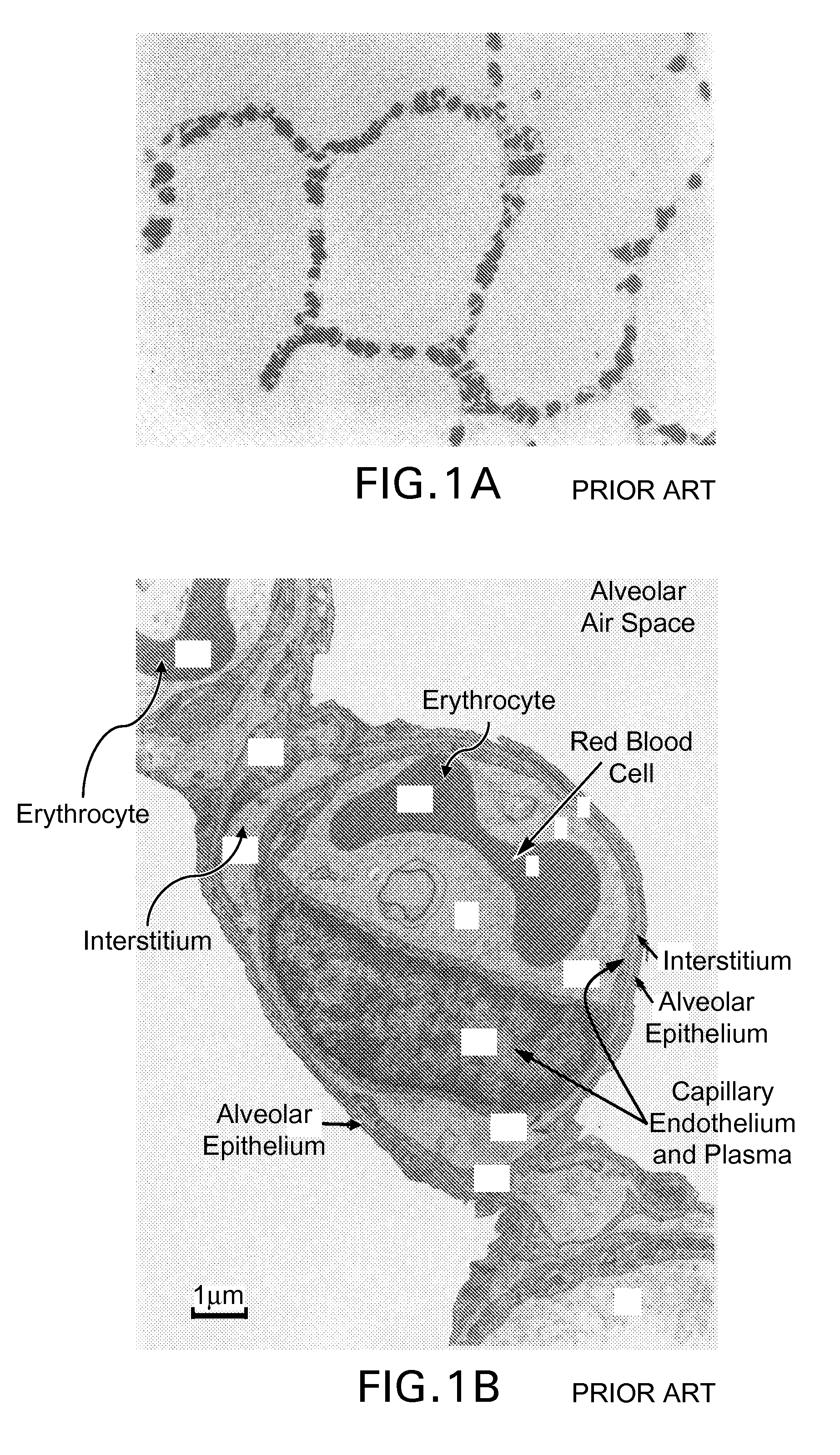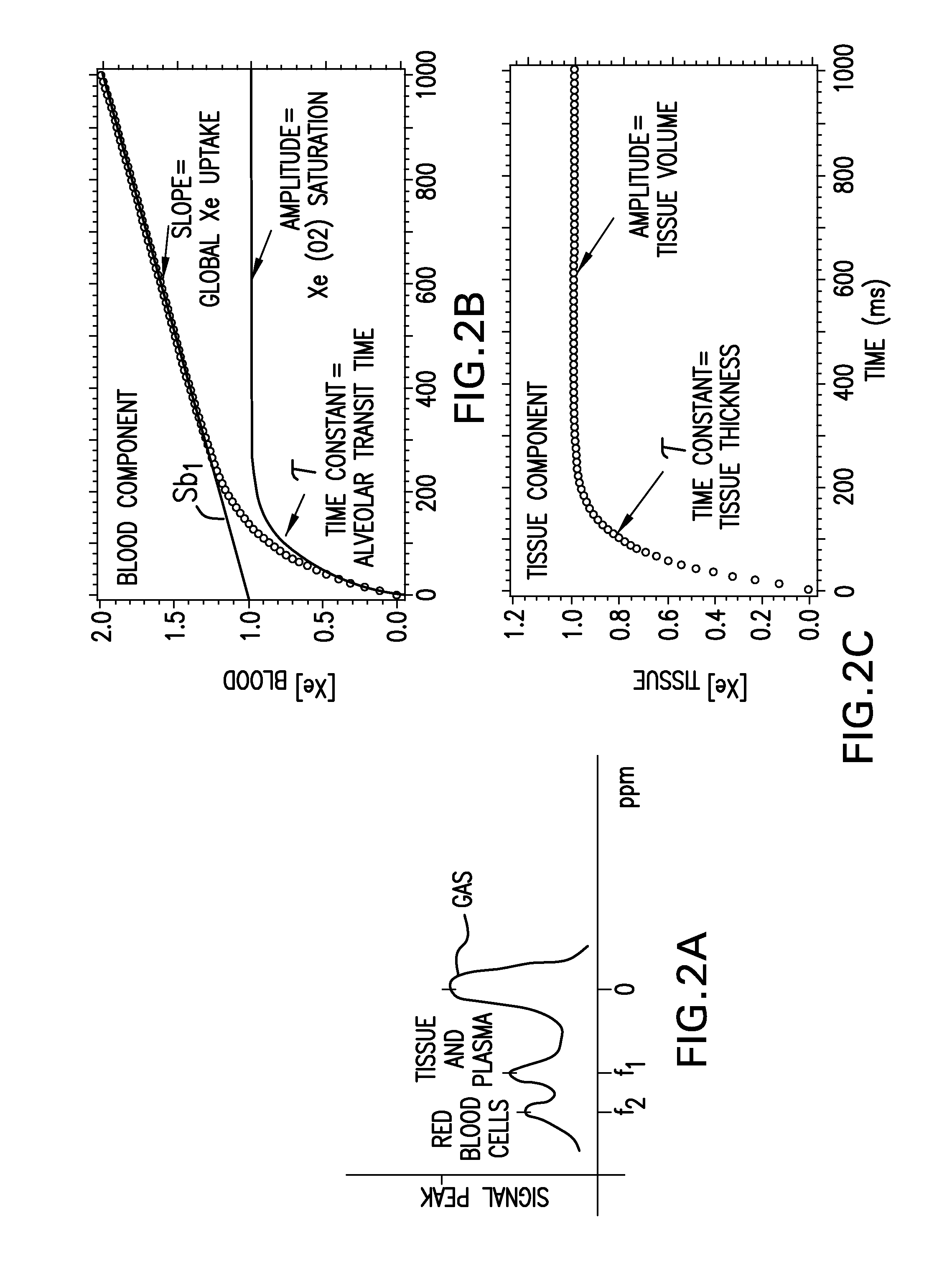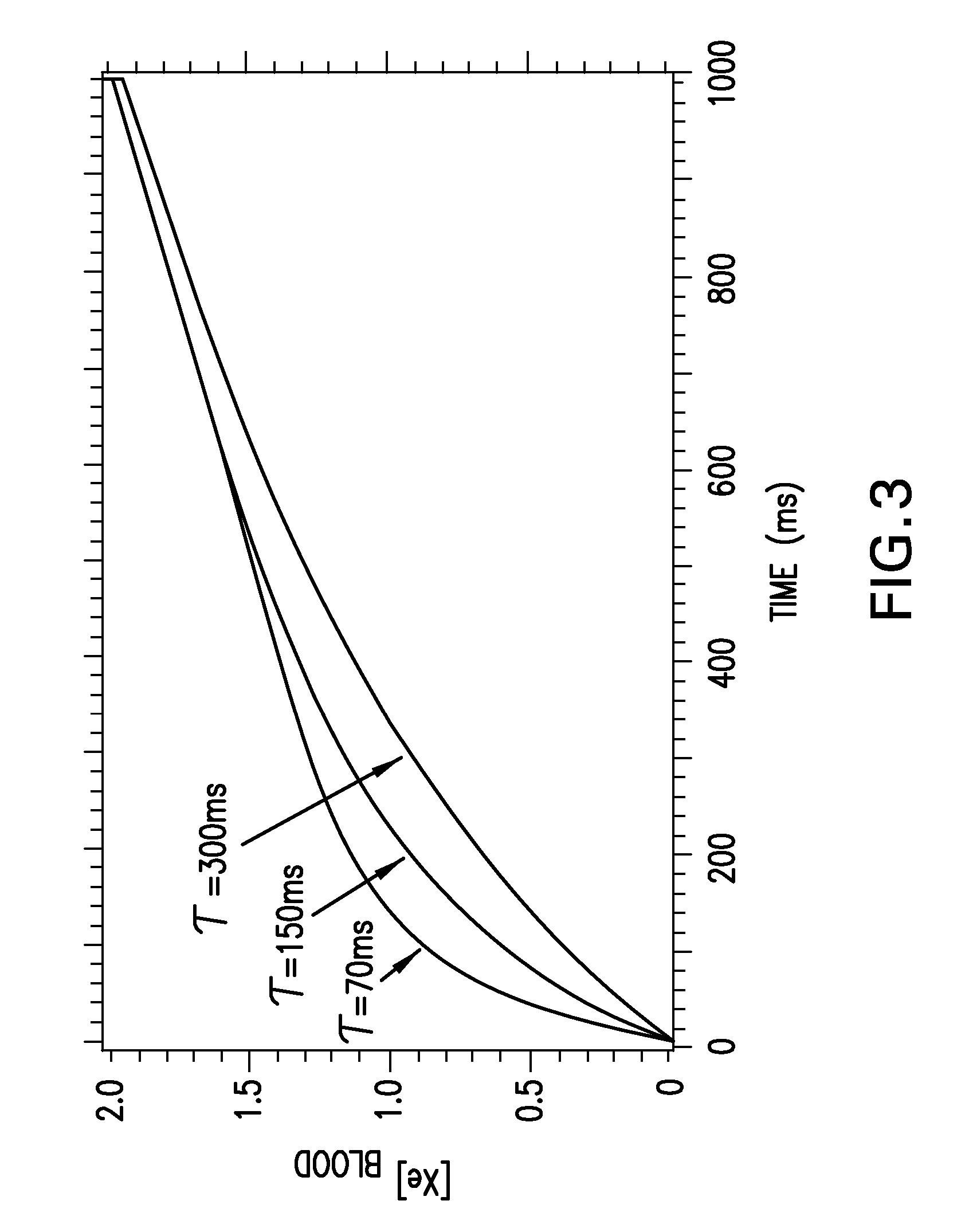Methods for In Vivo Evaluation of Pulmonary Physiology And/Or Function Using NMR Signals of Polarized 129Xe
a polarized 129xe, in vivo technology, applied in the field of magnetic resonance imaging, can solve the problems of diastolic dysfunction, difficult identification of disorder or condition, and inability to effectively treat patients,
- Summary
- Abstract
- Description
- Claims
- Application Information
AI Technical Summary
Benefits of technology
Problems solved by technology
Method used
Image
Examples
examples
[0131] The ability to quantify pulmonary diffusing capacity and perfusion using dynamic hyperpolarized 129Xe NMR spectroscopy was experimentally demonstrated. A model of alveolar gas exchange was developed, which, in conjunction with 129Xe NMR, allows quantification of average alveolar wall thickness, pulmonary perfusion, capillary diffusion length and mean transit time. The technique was employed to compare a group of naïve rats (n=10) with a group of rats with acute inflammatory lung injury (n=10), caused by instillation of lipopolysaccaride (LPS). The measured structural and perfusion-related parameters were in agreement with reported values from studies using non-NMR methods. Significant differences between the groups were found in total diffusion length (control 8.6±μm, LPS 10.0±0.8μm, p<0.001) and in average alveolar wall thickness (control 4.9±0.9 μm, LPS 6.4±1.2 μm, p<0.01), whereas no statistically significant differences were observed in the perfusion-related parameters. T...
PUM
 Login to View More
Login to View More Abstract
Description
Claims
Application Information
 Login to View More
Login to View More - R&D
- Intellectual Property
- Life Sciences
- Materials
- Tech Scout
- Unparalleled Data Quality
- Higher Quality Content
- 60% Fewer Hallucinations
Browse by: Latest US Patents, China's latest patents, Technical Efficacy Thesaurus, Application Domain, Technology Topic, Popular Technical Reports.
© 2025 PatSnap. All rights reserved.Legal|Privacy policy|Modern Slavery Act Transparency Statement|Sitemap|About US| Contact US: help@patsnap.com



